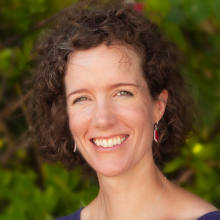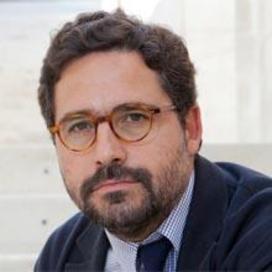The Sustainable Development Goals (SDGs) and Global Health
We seek to strengthen the role of knowledge and innovation in the implementation of the SDGs

SDGs: A universal call to end poverty, protect the planet and ensure all people enjoy peace and prosperity
The 2030 Agenda -and its 17 Sustainable Development Goals- is the roadmap for global development in the coming years. These global goals (and 169 targets) build on the achievements and aspirations of the Millennium Development Goals (MDGs) but go well beyond and include new, interdependent challenges such as climate change, economic inequality, sustainable consumption, peace and justice, among others. Contrary to the MDGs, this inclusive agenda launched in September 2015 by the UN General Assembly, applies to all countries, rich and poor, although each country is expected to push forward the different targets in accordance with its own priorities.
SDG 3: Health and well-being
Health has a central position in the agenda through SDG 3, and is closely linked to over a dozen targets in other goals related to urban health, equal access to treatments, and non-communicable diseases, among others. In fact, the SDGs represent a unique opportunity to promote public health through an integrated approach to public policies across different sectors (the Health in All approach defined by the WHO). For example, better education for girls (goal 4.1) in southern Africa would improve maternal health (goal 3.1); tackling child malnourishment (goal 2.2) would have a great impact on child health (goal 3.2); and ensuring access to safe water (6.1) or tackling ambient air pollution (11.6) will evidently have a direct impact on several SDG3 targets. On the other hand, using coal to improve energy access (goal 7), would have a negative impact on health. Thus, the achievement of the health goals will need policy coherence to reinforce synergies between certain SDGs and minimise trade-offs.
ISGlobal and the SDGs
In ISGlobal, we work on projects that not only address SDG 3 (good health and well-being) but also other SDGs that directly impact health, particularly SDG 10 (reduce inequalities), 11 (sustainable cities), 13 (climate action) and 17 (partnerships), in both developed and developing countries.
Our team works very closely with our scientific teams to strengthen the role of knowledge and innovation in the implementation of the SDGs. We also advise the government, political parties and private companies in Spain on how they can contribute to the full implementation of the SDGs in our country.
In the international sphere, ISGlobal, working with two academic institutions in China and in India, is coordinating the Health for All initiative within the framework of the Sustainable Development Solutions Network. Under the leadership of Professor Jeffrey Sachs and the Earth Institute at the University of Columbia (New York), this project promotes good practices and access to information to ensure the success of the SDGs. In addition to this work in the international domain, we also support the activities of the Spanish Network for Sustainable Development, the Spanish arm of the Health for All initiative.
Our second major international project is the coordination of the European hub of Think_SDGs, the European Network of Global Health Policy Think Tanks for the SDGs. The aim of the network, which is led by the Geneva Institute of Global Health, is to foster collaboration between members in research and dissemination activities to accelerate the achievement of the health-related goals of the 2030 Agenda.
Posts on Health Equity
Check out the Health is Global blog for posts on Health Equity.





